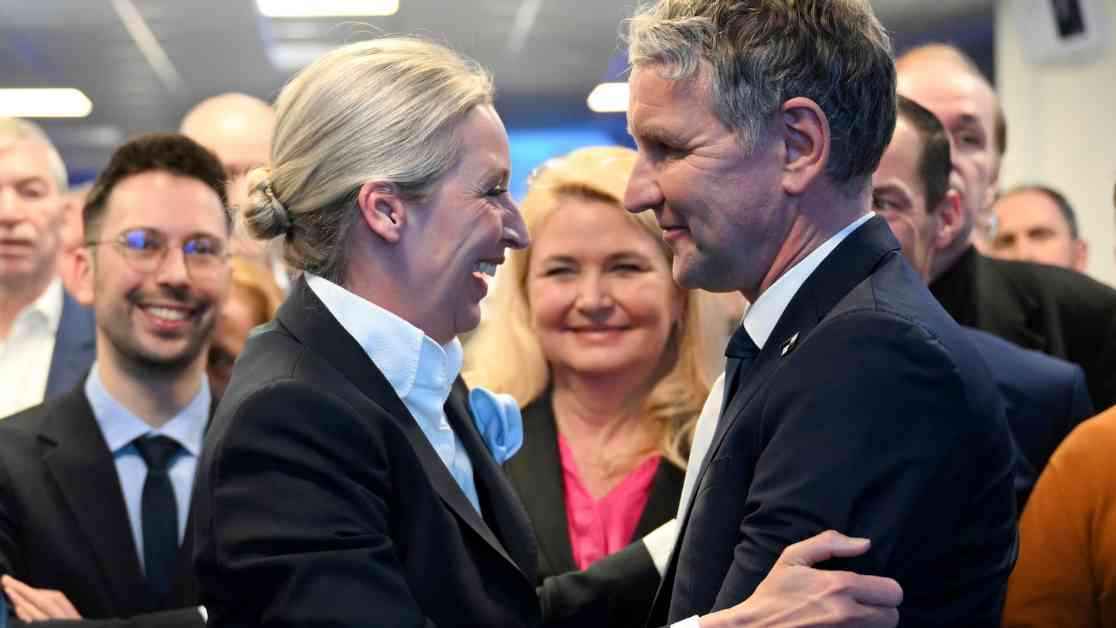A conservative victory in the recent German election has sent shockwaves through the political landscape of the nation. Friedrich Merz, the leader of the conservative opposition, emerged as the winner in what was deemed a lackluster election. However, the most striking development was the doubling of support for the far-right Alternative for Germany party, marking their strongest showing since World War II. Chancellor Olaf Scholz, representing the center-left Social Democrats, conceded defeat in the face of what he described as a “bitter election result.”
The election, held seven months earlier than planned due to the collapse of Scholz’s coalition, was mired in discontent and lack of enthusiasm among voters. The campaign was overshadowed by concerns about the stagnant economy and the need to address migration issues. Against a backdrop of growing uncertainty over Ukraine and Europe’s alliance with the United States, the election results are expected to have far-reaching implications not only for Germany but for the entire continent.
Merz’s Victory and Future Challenges
Friedrich Merz’s Union bloc secured around 28.5% of the vote, positioning him to potentially form a coalition government by Easter. However, the path to a stable government remains fraught with challenges. Merz faces the task of navigating complex political dynamics and forming alliances that will enable effective governance in the wake of the election results.
Implications for the Future of Germany
The rise of the Alternative for Germany party, with approximately 20.5% of the vote, signals a significant shift in Germany’s political landscape. The party’s success has sparked debates about the direction of German politics and the potential for coalition building in the aftermath of the election. The need for strategic decision-making and collaboration among various political factions will be crucial in shaping the future of the country.
Expert Insights and Analysis
Political analysts have pointed to the weakened center and the need for moderation in political discourse following the election. The Greens, a key player in the outgoing government, have emerged relatively unscathed from the election results, positioning them as a potential partner in future coalition talks. The complex interplay of political ideologies and interests will determine the trajectory of German politics in the coming years.
In conclusion, the recent German election has set the stage for a new chapter in the country’s political history. The outcome has far-reaching implications for Germany’s domestic policies and its role in the broader European context. As Friedrich Merz prepares to take the helm of the nation, the challenges ahead are formidable, requiring deft political maneuvering and a commitment to addressing the concerns of a diverse electorate. The aftermath of the election will test Germany’s resilience and ability to navigate an ever-evolving political landscape.


